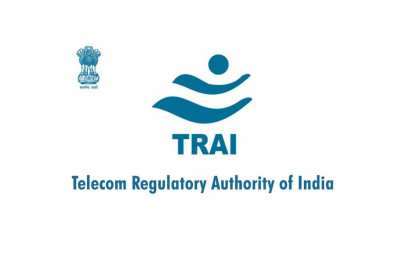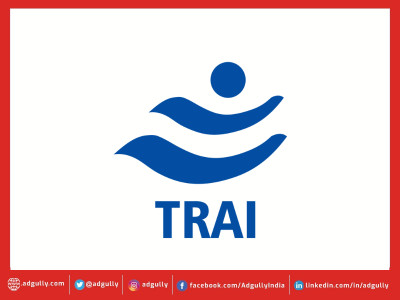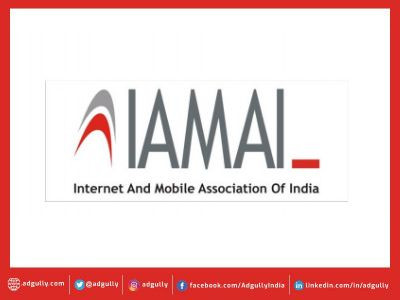TRAI’s review of TV ratings landscape: Interference or course-correction?
Though BARC India came into existence in July 2010, no significant progress was made by BARC to set up a transparent television rating mechanism in the country – this was the observation of the Telecom Regulatory Authority of India (TRAI) in its consultation paper on ‘Review of Television Audience Measurement and Ratings in India’, released on December 3, 2018. With this consultation paper TRAI solicited the views of stakeholders on regulatory initiatives/ measures to be taken to make TV rating services more accurate, widely acceptable. The consultation paper also explored possibilities of using new technologies to enhance credibility, transparency, neutrality and fairness in the TV rating in India.
Based on the comments and counter-comments received from industry stakeholders, TRAI yesterday (April 28, 2020), released its recommendations, which will have far-reaching impact on the TV ratings landscape in the country as well as the operations of BARC India. First and foremost, TRAI has sought structural reforms in BARC, wherein the Regulator recommended that the Board should have at least 50 per cent independent members, which should include one member as a measurement technology expert, one statistician of national repute from among the top institution(s) of the country and two representatives from the Government/ Regulator.
Also read:
TRAI recommends changes in BARC; calls for multiple data collection agencies
TRAI said, “Restructured Board of BARC India should provide for equal representation of the three constituent industry associations, namely: AAAI, ISA and IBF and with equal voting rights irrespective of their proportion of equity holding. Tenure of the members of the board shall be for two years.”
Understandably, Partho Dasgupta, Management Consultant and first CEO of BARC India, is not happy with the recommendations as he told Adgully, “I find some provisions quite impractical – the economics do not support multiple agencies, 100,000 sample homes, etc.”
Yesterday, when Adgully reached out to BARC India for their reactions to TRAI’s recommendations, a BARC India spokesperson stated that BARC had just received TRAI’s recommendations and was reviewing the same in consultation with its Board and stakeholders and refused to comment at this “very early stage”. The spokesperson maintained, “All stakeholders from the industry and the Government and related bodies are aware of the scientific, statistical and technical robustness of the data collated and released by BARC. BARC truly represents all facets of the Industry comprising Advertisers, Agencies and Broadcasters regardless of size, as the Currency of What India Watches.”
Apart from suggesting a more inclusive Board for the BARC, the Authority is also of the view that a broad-based Oversight Committee with experts from related fields should include representations from National Council of Applied Economic Research, IIT, IIM, media research expert and demography expert, and nominee from the Ministry of Information & Broadcasting and TRAI.
In order to ensure inherent checks in data inconsistency, TRAI recommended that BARC separated its functions in two units: (a) one unit should be responsible for prescribing methodology of ratings/ validation of data, publishing the data and audit mechanism; and (b) the other unit for processing the data, watermarking or any other such technical work including management of data collection agencies.
The Authority was also of the view that in the era of big data and Artificial Intelligence, introduction of competition in rating services would bring in new and innovative methodology, and thus, limit the monopoly of BARC. TRAI stressed on the need to create credible and accurate collection of data by encouraging multiple data collection agencies.
Shailesh Kapoor, Founder & CEO, Ormax Media, was of the opinion that multiple agencies for measurement never survive. “We have seen that worldwide and in India, too, in the past. BARC is an industry body and I believe it is here to stay. BARC’s constituent stakeholders and TRAI (Government) can get into a dialogue once the lockdown is eased off, and do consultations. That will be a more prudent way ahead, though one could question why BARC needs to be answerable to the Government in the first place. Accuracy of ratings will always be a matter of debate, and BARC has been taking, and should continue to take, measures to improve the accuracy levels.”
TRAI also recommended that BARC be at an arm’s length from its own subsidiary, Meterology Data, which is the sole data collecting agency for BARC, as of now; so that the entire process of measurement is carried out independently to ensure inherent checks in data inconsistency.
Neeraj Sanan, Founder, Zoom2Growth, remarked, “Different maker-checker and arms length relationship between manager and implementer are always great.”
A leading broadcaster, speaking on condition of anonymity, commented, “It is a very good thing and I give it a thumbs up. The regulator has made a very progressive move. It will strengthen the governance of the measurement body, and remove any gaps and challenges that have been created by the current ownership structure. It will improve the quality and robustness of data and make the BARC management team efficient and independent.”
Agreeing with this, Zoom2Growth’s Sanan, too, saw it as a huge step towards building trust between various stakeholders, which, he felt, does not exist today.
Ormax Media’s Shailesh Kapoor saw TRAI’s recommendations having a major impact as the changes suggested are structural and fundamental in nature, and not just some enhancement recommendations. “We will have to wait and see how BARC and its constituent agencies respond to this. They may take a differing view and challenge TRAI’s recommendations,” he remarked.
At the same time, Kapoor felt that TRAI has been over-eager in trying to influence broadcasting operations in India. According to him, “In NTO 2.0, their ad hoc approach was apparent. Now, we see an interference in a ratings system that has been running fairly smoothly. The timing of these recommendations is quite inappropriate too. The entire economy is disrupted currently, and broadcasters and advertisers are both facing challenges of their own, and this will be the case for at least another few months. Why these recommendations had to come in these tough times baffles me.”
The same question was raised by a media industry veteran as well, who maintained that, “Now is not the right time to come up with such recommendations on TRAI’s part – amid the COVID-19 disruption and no revenues.” He further said that this BARC ratings system had been working for five years now and no one had raised an issue against it in the past. “Can you envisage what will happen if there are no ratings?” he asked.
Another media industry expert called TRAI’s recommendations in “poor taste”, especially coming one day prior to the 5th anniversary of BARC becoming operational. “Moreover, the Consultation Paper is 2 years old and a lot has transpired in this period in the broadcast landscape,” he said, and spared no words when he emphasised, “BARC is a non-profit organisation and has been carrying out the TV ratings work amid the COVID-19 and lockdown period, risking the health of the people doing the field work. So, it is excruciating and infuriating that such a step has been taken with malafide intention, without evidence and giving indictment without substantiating the charges. TRAI has penalised BARC without trial.”
A leading media advisor echoed these views when he asked, “Why is the Government keen on meddling with the measurement system?”
Speaking on BARC’s organisational structure, which started out as a 60:20:20 share among the stakeholders – IBF, AAAI and ISA, respectively – the media advisor noted that AAAI was moved out of the equation a while back, leaving behind IBF and ISA. With IBF being the largest shareholder, naturally all decisions have to go through them, he maintained. Adding further, he said, “TAM was vendor-driven, whereas under BARC, it is broadcaster-driven. Why hasn’t the ISA raised its voice?”
During the TV ratings dark period while the system was transitioning from TAM to BARC, the media expert pointed out that the Indian Premier League inventory was bought on previous year’s data. “TRAI is not aware of the ground realities,” he alleged, adding “They can suggest, but not mandate who will pay for the data.”
Meanwhile, he agreed that BARC should have an external body, which, he felt, would give confidence to the stakeholders. “TAM, too, had appointed a full-time vigilance chief, who was a former ACP,” he noted.















Share
Facebook
YouTube
Tweet
Twitter
LinkedIn